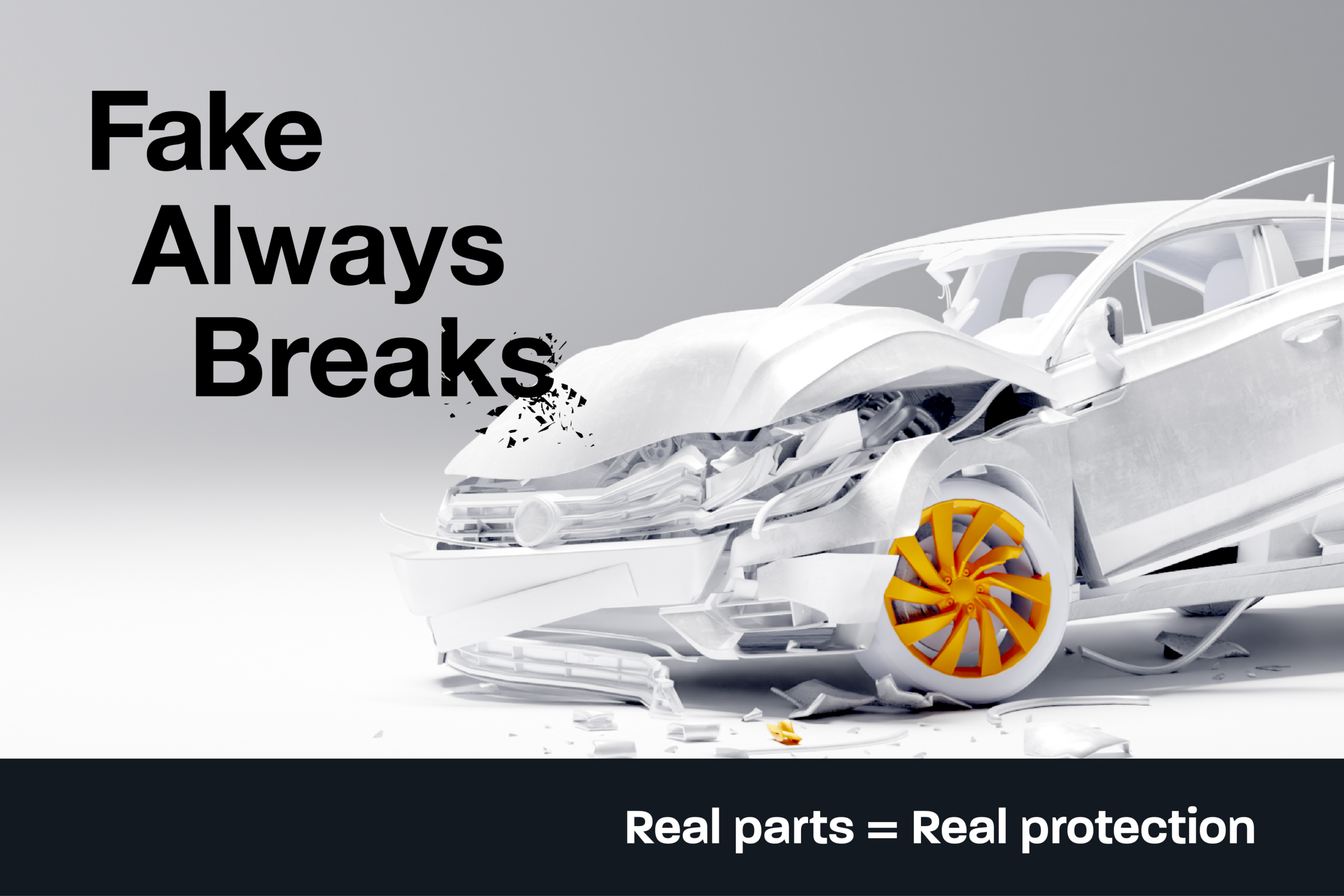The Government is launching a national awareness campaign, ‘Fake Always Breaks’ about the dangers of buying counterfeit car parts, including wheels, airbags and brakes that can leave cars unsafe.
The fake parts campaign by the Government’s Intellectual Property Office (IPO) is being backed by the Independent Garage Association (IGA) and the Independent Automotive Aftermarket Federation (IAAF) which want garages as well as consumers to be alert for counterfeits.
The IPO fears the issue is “widespread” as it commissioned a survey of almost 1,400 motorists and found one in six believed they had purchased a counterfeit part in the past 12 months, many of which did so due to saving cost.
And recent police raids have discovered criminal gangs involved in the mass supply of fake parts. In one raid City of London Police seized 500 counterfeit airbags from properties in East London, which detectives believe were imported from China, and in another at Milton Keynes officers seized £22,000 worth of fake Ford Transit fuel filters, exhaust temperature sensors and brake pedals.
Stuart James, chief executive at the Independent Garage Association (IGA): “We are pleased to support the IPO’s campaign that aims to raise awareness of the severe safety risks that counterfeit vehicle parts pose to all road users.”
“Garages should ensure that they avoid using customer supplied parts and fit parts from trusted suppliers and reputable vehicle parts distributors. This practice not only enhances the safety of vehicles but also reassures customers that all components meet the required specifications.”
“We actively encourage any garage that identifies counterfeit parts to report them through the various channels highlighted in the IPO advice. Together, we can combat this issue and contribute to safer roads for all.”
Workshops can find out more and how to report suspected counterfeit parts at the IPO’s website.
The most commonly bought counterfeit parts include car batteries and tyres/wheels.
The ‘Fake Always Breaks’ campaign highlights that counterfeits are more likely to fail and endanger road users, putting lives at risk. Unlike OEM parts and proper aftermarket parts, which are quality tested, counterfeits are usually made from inferior materials and untested.
Marketing for the campaign has begun across social media channels, and the IPO aims to bring on board more of the motor industry in the coming weeks, equipping supporters with a toolkit of posters, social media assets and website copy and images so that they can help to spread the word.
Miles Rees, IPO deputy director of enforcement at the Intellectual Property Office, added: “Fake car parts are illegal to sell and are very dangerous for motorists and other road users. While they may look the same, they are often made from inferior materials and are not safety tested. This increases the risk of failure and can lead to life-changing or life-ending consequences – a risk not worth taking.
“As we enter the darker, colder, icier months, driving can become more hazardous. This is why it is now more important than ever to highlight the dangers of fakes to motorists and help make every journey as safe as it can be. Our ‘Fake Always Breaks’ campaign aims to arm drivers with the information they need to spot a fake, avoid the risks and report sellers.”
The campaign also shares the following advice for consumers and the motoring industry on how to spot a fake:
- Be wary of price – if it looks too good to be true, it probably is.
- Research the seller – if you are unfamiliar with the company selling the product, look at previous customer reviews and conduct some background research
- Check the spec – fake parts are often ‘one size fits all’ and not made for your vehicle. This could be dangerous and cause irreversible damage.
- Look for proof – genuine parts will come with a certificate of Original Equipment. If there isn’t one, it’s likely to be a fake.
- Suspect it’s fake? Report it – it is illegal to sell counterfeits, and sellers should be reported to Crimestoppers.

